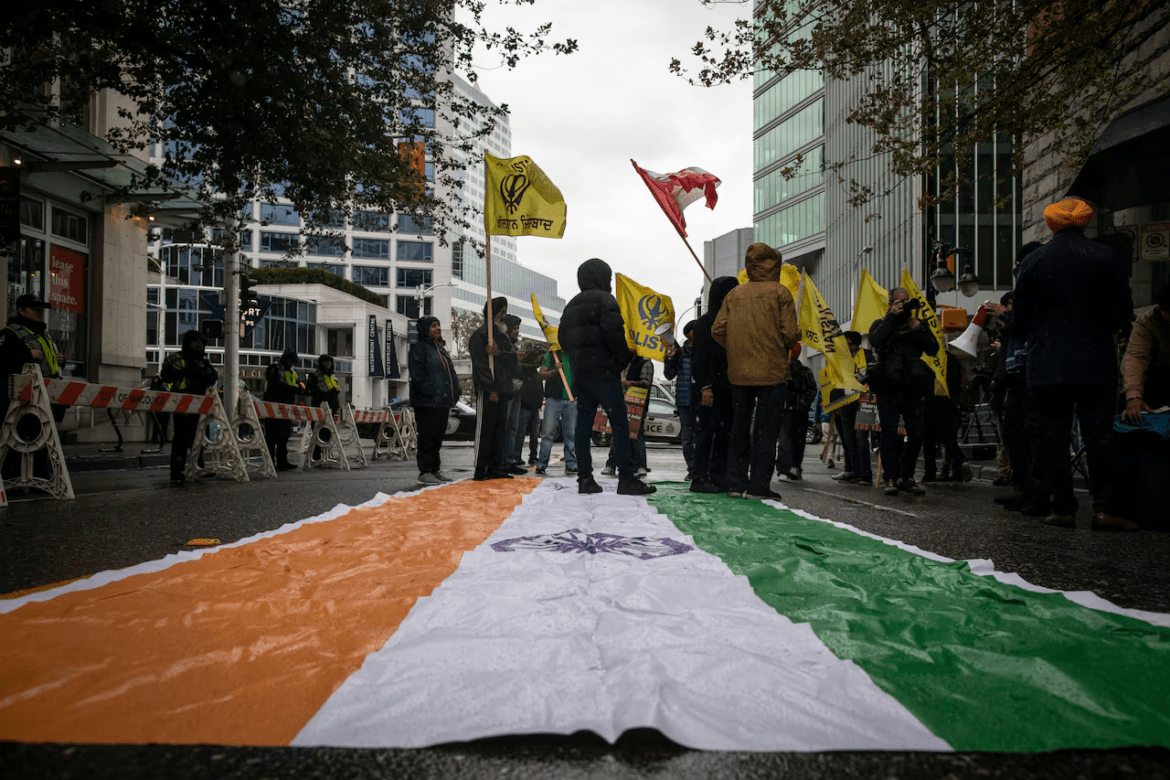AI Generated Summary
- In a concerning turn of events, Canadian streets have become a stage for the glorification of violence, as extremism finds a growing foothold.
- Strengthening ties with India and addressing their concerns would also be a step in the right direction, signaling that Canada is serious about combating terrorism in all forms.
- In a video shared by Mocha Bezirgan, a Canadian journalist, Khalistan activists paraded their children while calling for separatism, explicitly instructing the journalist to record the scene.
In a concerning turn of events, Canadian streets have become a stage for the glorification of violence, as extremism finds a growing foothold. In a video shared by Mocha Bezirgan, a Canadian journalist, Khalistan activists paraded their children while calling for separatism, explicitly instructing the journalist to record the scene. The message, they claimed, was meant to signal to India that “the next generation of Khalistanis are in the making.”
Glorification of violence on Canadian streets in slow motion: Khalistan activists brought their babies and explicitly asked me to make sure I record them.
— Mocha Bezirgan 🇨🇦 (@BezirganMocha) January 27, 2025
They believe this will send a crucial message to India that the next generation of Khalistanis are in the making.
Follow… pic.twitter.com/D8lMECNX1B
This brazen display of radicalism has left many Canadians questioning the state of their country and the government’s role in enabling such activities. Critics argue that Prime Minister Justin Trudeau’s approach to extremism—marked by a blend of appeasement and political correctness—has emboldened groups with divisive and violent ideologies. The Khalistan movement, which calls for a separate Sikh state carved out of India, has long been a contentious issue between Canada and India. However, the recent public demonstrations have reignited the debate, raising alarms about the future of social cohesion in Canada.
Bezirgan’s footage highlights an alarming trend: the normalization of extremist narratives in public spaces. What is even more shocking is the use of children as tools to promote these ideologies. Parents openly parading their toddlers as symbols of separatism not only undermines the principles of responsible parenting but also exposes a darker reality about the long-term impact of such radical indoctrination.
Observers note that the Khalistan movement has found fertile ground in Canada, a country celebrated for its multiculturalism. But the same multicultural policies have also been criticized for failing to address the spread of extremism under the guise of cultural expression. By failing to draw a firm line against radical activities, Trudeau’s government has inadvertently provided these groups with a safe haven.
India, which views the Khalistan movement as a direct threat to its sovereignty, has repeatedly expressed concerns about extremist elements operating freely in Canada. These concerns reached a boiling point last year when Trudeau’s government was accused of turning a blind eye to violent protests targeting Indian diplomats and institutions. Critics argue that Trudeau’s reluctance to take a hard stance stems from political calculations, given the significant influence of Sikh voters in Canadian elections.
But this issue is no longer just about diplomacy—it is about Canada’s future. The rising visibility of extremist ideologies threatens to erode the country’s social fabric, turning peaceful communities into breeding grounds for division and hatred. The use of public spaces to glorify violence is a wake-up call that demands immediate action.
What can be done? For starters, Canada must reevaluate its policies on extremism and adopt a zero-tolerance approach to any group promoting violence, regardless of political considerations. Strengthening ties with India and addressing their concerns would also be a step in the right direction, signaling that Canada is serious about combating terrorism in all forms.
Cleaning up the mess, however, won’t be easy. Years of inaction have allowed these groups to grow unchecked, and rooting out their influence will require political will, community engagement, and an unwavering commitment to democratic values. Trudeau’s government must recognize the gravity of the situation and act decisively, lest Canada’s streets continue to spiral into chaos.
Canada’s reputation as a beacon of peace and tolerance is at stake. The time to act is now, before the next generation inherits a nation divided by extremism.
The opinions expressed in this article are those of the author. They do not purport to reflect the opinions or views of Khalsa Vox or its members.




